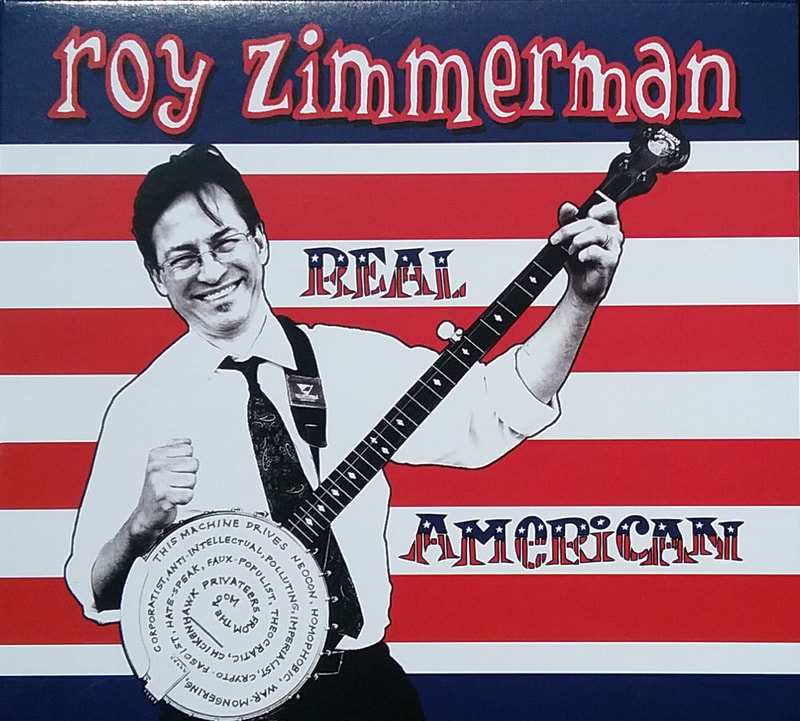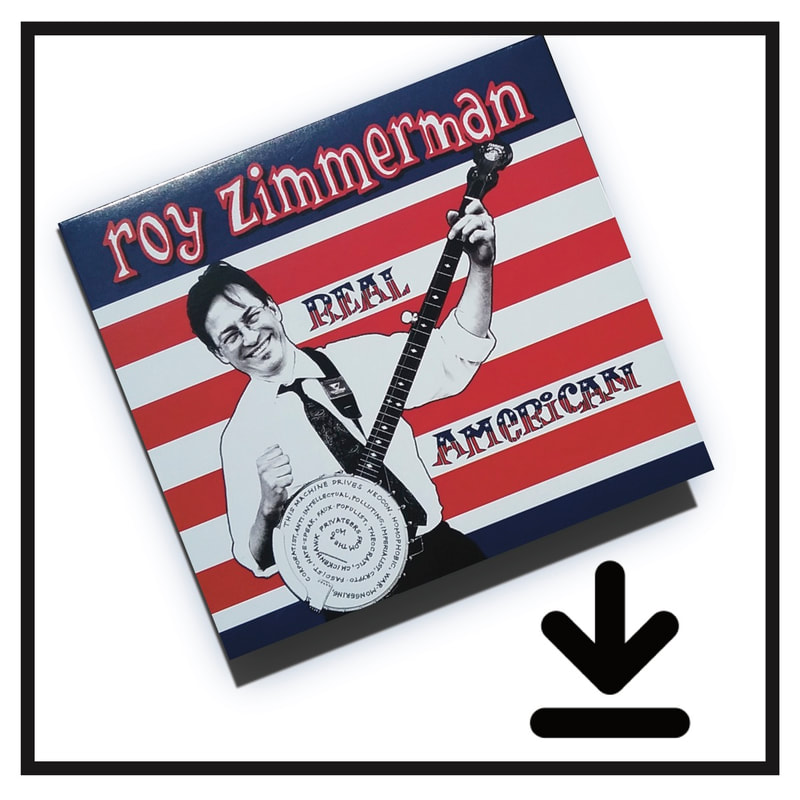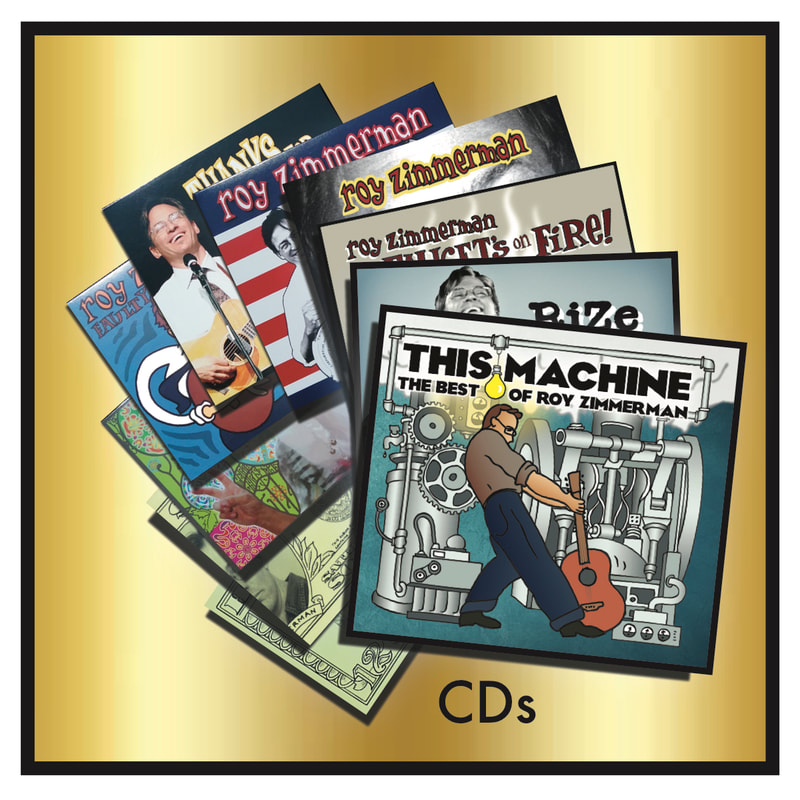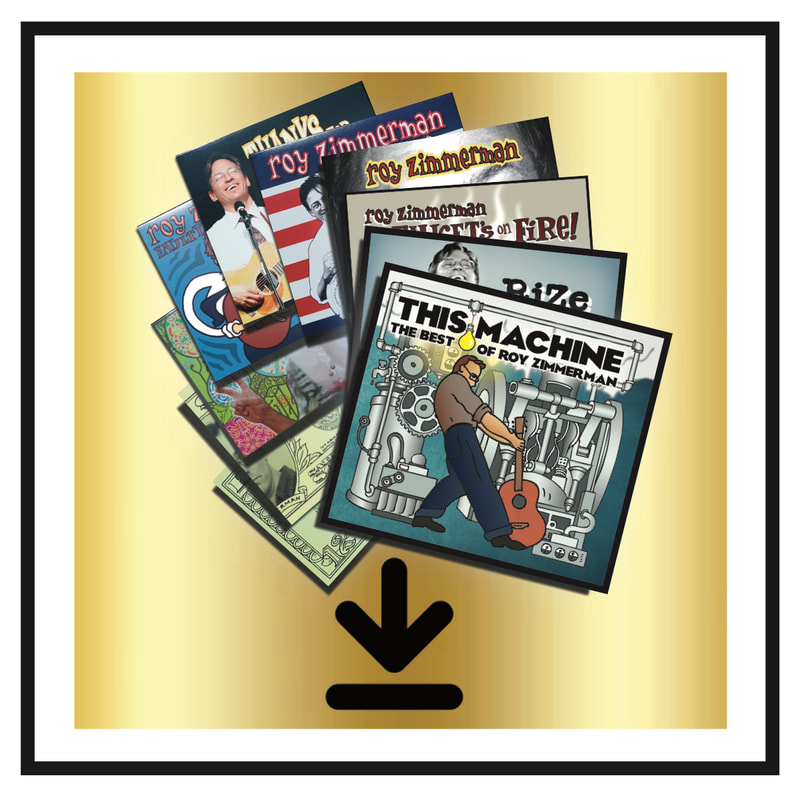SINGALONG SECOND AMENDMENT
words and music
copyright © 2008
by Roy Zimmerman
copyright © 2008
by Roy Zimmerman
A well-regulated militia
Being necessary for the security of a free state
The right of the people to keep and bear arms
Shall not be infringed!
Sing it with me now!
A well-regulated militia
Being necessary for the security of a free state
The right of the...
People... It’s the Second Amendment, people. It’s the most important amendment - that’s why it’s second. For what good are the First Amendment freedoms of religion, speech, press, assembly, redress of grievances if you can’t keep a Magnum in the nightstand? So let’s try it again, phrase by phrase...
A well-regulated militia...You!
(A well-regulated militia...) Good...
Being necessary for the security of a free state...And you!
(Being necessary for the security...)
Yeah, that’s a hard one. Because, as articulated by Justice Antonin Scalia, writing for the majority in District of Columbia versus Heller, the comma after the word “state” divides the text into two clauses, the prefatory and the operative, and renders the prefatory clause subordinate. And harder to sing. So let’s sing it again, and sing it out as if the words have some meaning, but not much.
Being necessary for the security of a free state...
(Being necessary for the security of a free state) Good.
The right of the people to keep and bear arms...And, you!
(The right of the people to keep and bear arms...)
Again, a hard one, because the version of the Second Amendment originally passed by the House and Senate employed a lower case “p” in the word “people” whereas an upper case “P” was utilized in the version ratified by the states. So the question has always been are we talking about “the People” like “We the People...” or are we talking about, you know, “people” like (name here)? Try it again, and try to remember Justice Antonin Scalia, and think “small p.”
The right of the people to keep and bear arms...
(The right of the people to keep and bear arms...) Good
Shall not be infringed...
Shall not be infringed
Now we’re going to sing it as a round! You, from here over, you’re the Hunters and Sportsmen, people with a legitimate recreational interest in firearms. And you over here, you’re the Protectors of Home and Family, many of whom have extensive training in the safe fihandling of firearms and know not to point them at Home and Family. Now, the Framers of the Constitution could not possibly have imagined how many rounds we could get off in a short space of time. But we’re going to do just two. It’s going to be Hunters and Sportsmen, and Protectors of Home and Family. Here we go, Hunters!
A well regulated...
Protectors!
A well regulated... (etc)
See how well that Columbines? But this is not a collective right. This is an individual right, as Justice Scalia reminds us. So let’s sing it again, Hunters and Sportsmen, Protectors of Home and Family, Crazy Loner in the back. Sing it again, this time with no interference whatsoever from an o’erweening central authority. Ready, go!
Being necessary for the security of a free state
The right of the people to keep and bear arms
Shall not be infringed!
Sing it with me now!
A well-regulated militia
Being necessary for the security of a free state
The right of the...
People... It’s the Second Amendment, people. It’s the most important amendment - that’s why it’s second. For what good are the First Amendment freedoms of religion, speech, press, assembly, redress of grievances if you can’t keep a Magnum in the nightstand? So let’s try it again, phrase by phrase...
A well-regulated militia...You!
(A well-regulated militia...) Good...
Being necessary for the security of a free state...And you!
(Being necessary for the security...)
Yeah, that’s a hard one. Because, as articulated by Justice Antonin Scalia, writing for the majority in District of Columbia versus Heller, the comma after the word “state” divides the text into two clauses, the prefatory and the operative, and renders the prefatory clause subordinate. And harder to sing. So let’s sing it again, and sing it out as if the words have some meaning, but not much.
Being necessary for the security of a free state...
(Being necessary for the security of a free state) Good.
The right of the people to keep and bear arms...And, you!
(The right of the people to keep and bear arms...)
Again, a hard one, because the version of the Second Amendment originally passed by the House and Senate employed a lower case “p” in the word “people” whereas an upper case “P” was utilized in the version ratified by the states. So the question has always been are we talking about “the People” like “We the People...” or are we talking about, you know, “people” like (name here)? Try it again, and try to remember Justice Antonin Scalia, and think “small p.”
The right of the people to keep and bear arms...
(The right of the people to keep and bear arms...) Good
Shall not be infringed...
Shall not be infringed
Now we’re going to sing it as a round! You, from here over, you’re the Hunters and Sportsmen, people with a legitimate recreational interest in firearms. And you over here, you’re the Protectors of Home and Family, many of whom have extensive training in the safe fihandling of firearms and know not to point them at Home and Family. Now, the Framers of the Constitution could not possibly have imagined how many rounds we could get off in a short space of time. But we’re going to do just two. It’s going to be Hunters and Sportsmen, and Protectors of Home and Family. Here we go, Hunters!
A well regulated...
Protectors!
A well regulated... (etc)
See how well that Columbines? But this is not a collective right. This is an individual right, as Justice Scalia reminds us. So let’s sing it again, Hunters and Sportsmen, Protectors of Home and Family, Crazy Loner in the back. Sing it again, this time with no interference whatsoever from an o’erweening central authority. Ready, go!





